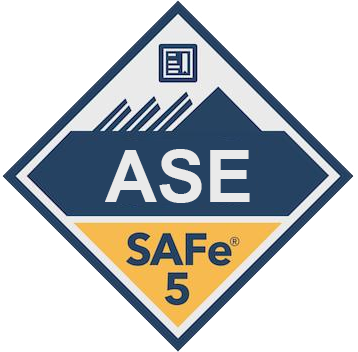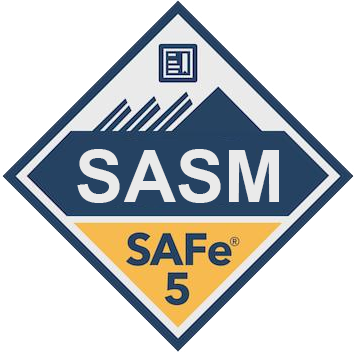Extreme Programming: Building Software with Agility and Collaboration
Extreme Programming (XP) is an agile software development methodology designed to deliver high-quality software through continuous feedback, collaboration, and adaptation. It’s a specific and prescriptive approach within the broader agile umbrella, emphasizing a set of core values, principles, and practices.
Core Concepts of XP ( Extreme Programming )
- Values: Communication, simplicity, feedback, courage, and respect form the foundation of XP. These values guide decision-making and team interactions throughout the development process.
- Communication: XP thrives on open and transparent communication between developers, customers, and stakeholders. Daily stand-up meetings and user story creation sessions ensure everyone is on the same page.
- Simplicity: XP promotes a focus on building the simplest solution that meets the current need. This avoids over-engineering and keeps the codebase maintainable.
- Feedback: Continuous feedback is crucial in XP. Techniques like pair programming and on-site customers ensure constant evaluation and improvement of the developing software.
- Courage: XP encourages developers to be brave in refactoring code, experimenting with new ideas, and challenging assumptions. This fosters a culture of continuous learning and improvement.
- Respect: Mutual respect between team members, customers, and stakeholders is essential for effective collaboration and a positive development environment.
- Principles: XP translates its values into actionable principles. Examples include:
- Small Releases: Frequent deployments of working software in short cycles enable rapid feedback and course correction. This reduces risk and allows for early validation of ideas.
- Embrace Change: XP acknowledges that requirements can evolve throughout a project. The iterative nature of XP allows for continuous adaptation to changing needs without derailing the project.
- Work in Short Iterations: Breaking down development into small, time-boxed iterations (e.g., one to two weeks) promotes focus and keeps the project on track. Each iteration delivers a potentially shippable product increment.
- Sustainable Pace: XP emphasizes creating a development process that developers can maintain over time. This includes practices like pair programming, which can reduce burnout and improve code quality.
- Practices: These are the concrete methods that put XP’s principles into action. Some of the most well-known XP practices include:
- Pair Programming: Two developers work together on a single task, fostering knowledge sharing and improving code quality through real-time code review and collaboration.
- Test-Driven Development (TDD): Writing unit tests before code ensures functionality and maintainability. This practice emphasizes clear and concise code that meets specific requirements.
- Continuous Integration: Frequent code merges and automated builds minimize integration issues and ensure the entire codebase remains functional at all times.
- On-Site Customer: A dedicated customer representative actively participates in the development process, providing continuous feedback on priorities and functionality. This ensures the software remains aligned with actual user needs.
- Planning Game: This collaborative session brings together developers and customers to define priorities, estimate effort, and create a plan for the next iteration.
- Refactoring: Regular code refactoring improves code structure and maintainability without altering functionality. This helps keep the codebase clean and adaptable as the project evolves.
Applying XP in Practice
XP is ideally suited for projects with:
- Evolving requirements: The iterative nature of XP allows for continuous adaptation to changing needs.
- Small to medium-sized teams: The close collaboration practices of XP work best in teams where communication is efficient.
- High project visibility: XP thrives on transparency and open communication, making it a good fit for projects with clear stakeholder involvement.
Here’s an example of how XP Extreme Programming might be applied in practice:
- Project: Developing a new mobile learning application.
- Process: The development team works in short iterations (e.g., two weeks). At the beginning of each iteration, they hold a planning game with the on-site customer representative to prioritize user stories, which could include features like content creation, quiz functionalities, and progress tracking.
- Development: Developers practice pair programming and TDD to build the functionalities outlined in the user stories. Throughout the iteration, there’s continuous integration and automated testing to ensure quality. Daily stand-up meetings keep everyone informed of progress and potential roadblocks.
- Delivery: At the end of the iteration, a working version of the app with the completed user stories is deployed for customer feedback. This feedback then informs the priorities for the next iteration. The cycle continues until the core functionalities of the app are complete, with ongoing iterations for further refinement and feature development.
Benefits and Considerations of XP:
- Improved software quality: XP’s emphasis on testing, continuous integration, and code reviews leads to a more robust and maintainable product.
- Faster time to market: Frequent releases enable early feedback and faster delivery of value to customers. This allows for course correction and reduces the risk of building features that nobody wants.
- Increased team morale: Collaboration and communication are central to XP, fostering a more engaged and motivated development team. Shared ownership and continuous improvement create a sense of accomplishment and purpose.
- Reduced risk: The iterative nature of XP allows for early detection and correction of errors. Small releases minimize the impact of potential problems and make it easier to recover from setbacks.
Considerations:
- Learning curve: Implementing XP extreme Programming practices effectively may require a cultural shift for teams accustomed to traditional development methodologies. Training and mentorship can help ease the transition.
- Overhead: Practices like pair programming and continuous integration can initially seem time-consuming. However, the benefits in terms of quality, knowledge sharing, and early problem detection often outweigh the cost.
- Scalability: XP may be less suitable for very large teams or projects with highly complex requirements. The intensive communication and collaboration practices can become challenging to manage in large-scale projects.
Beyond the Core Practices:
While the core XP practices are well-established, XP is also an adaptable framework. Here are some additional practices that some teams may find beneficial:
- Collective Code Ownership: The entire team takes responsibility for the codebase, fostering a sense of shared accountability and encouraging code reviews and refactoring.
- Spike Solutions: For particularly complex or risky tasks, short, focused efforts (spikes) can be undertaken to gather information and reduce uncertainty before diving into full development.
- Coding Standards: Establishing clear coding standards promotes consistency, readability, and maintainability of the codebase. This can be especially helpful in pair programming environments.
- Continuous Learning: XP encourages a culture of continuous learning for developers. This can involve attending workshops, conferences, or participating in code reviews to stay up-to-date with the latest technologies and best practices.
Conclusion
Extreme Programming offers a powerful approach to software development, particularly for projects that value agility, collaboration, and continuous improvement. By understanding its core values, principles, and practices, teams can leverage XP’s strengths to deliver high-quality software that meets the evolving needs of their customers. However, it’s important to remember that XP is not a one-size-fits-all solution. Teams should carefully consider the specific needs of their project and adapt XP practices as needed to achieve optimal results.
For more posts like this follow Agile Digest social Pages or subscribe our newsletter:
Wesbite: https://us.agiledigest.com/
Facebook: https://www.facebook.com/agiledigest/
LinkedIn : https://www.linkedin.com/company/agiledigest/







































































